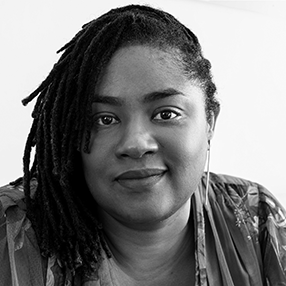Bird
Yesterday, at Shepherd and Gray, the parking lot was
filled with birds, black birds, actually grackles. It was a grackle
lot; instead of a bumper on a car, there were ten grackles, instead
of a sunroof, fifty grackles sat high, their bodies shimmers
under cheap strip mall lights as shoppers delayed their spending
to pull out phones and take shots, such spectators we were,
like that summer in July, when I was left again
to wonder who was the child and who the adult,
that Sunday evening that hung in the air like bug spray
when my father, the one who fed me and gave me his last name,
stood two stories on our family porch, every neighbor,
in all manner of dress, drawn from their homes, in the street watching.
Let me tell you how he spread his arms wide, like the man
he was before Vietnam, or before the schizophrenia.
Let me tell you how a child learns the alphabet by counting,
how she learns only 2 letters separate the words hero and heroin,
how he stood high on the ledge of a porch the child never much
liked because there was a crack in its wooden center as if the world
was waiting to open its jaws to swallow her body whole.
Let me tell you how that July evening didn’t hold death,
but instead was the preface to death. The point being he jumped.
Some will say there are worse songs to sing, others might believe it
a tragedy, but who are we to question the Gods when a man
unconcerned with the inconvenience of his presence shows up
in a parking lot winged as an army of himself? Eventually, lights
went dark in the shops and each watcher retraced their steps back home
to find their families, to rejoice over food, to laugh and settle the night;
and the birds, steadfast they stood, not quite ready for flight—
Copyright © 2020 by Niki Herd. Originally published in Poem-a-Day on January 20, 2020, by the Academy of American Poets.
“At some point I realized I hadn’t written a poem about my father—the very young man who legally adopted me when he married my mother— who was a Marine and more complicated than this poem suggests. He didn’t die that evening, but did years later at the age of twenty-six. When I sat down to write about this thing that happened, I was concerned with the disposability of black male bodies; had circumstances been different, would my father have lived long enough to see his grandchildren? Given who he was—and what this country remains to be—I know the answer to this question. This poem is my attempt at creating a different ending.”
—Niki Herd

